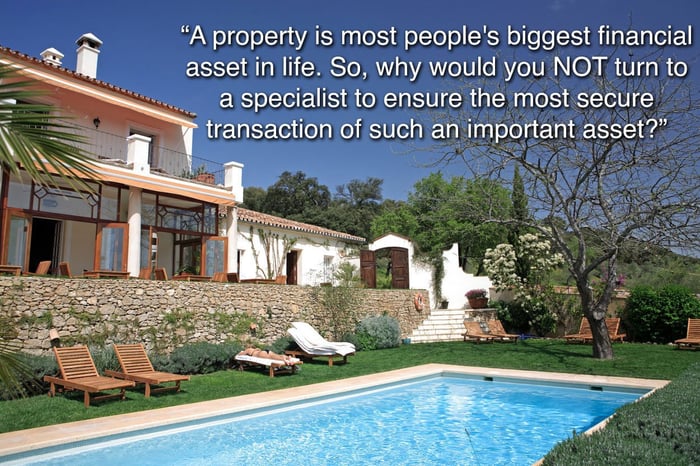Introduction:
In recent developments, the Spanish government has reportedly been lobbying the European Union to relax the 90-day limit for British visitors, potentially opening the door to a longer stay for second-home owners in Spain. This move comes as a response to a growing demand from British citizens who own second homes in the country. Interestingly, a similar endeavour in France has sparked controversy, with the Senate voting to amend immigration laws to grant British second-home owners long-stay visas, a decision at odds with the French executive led by President Macron.
This is how it was stated by The Mail Online: New visa joy for Brits with holiday homes as Spain joins France in calling for the post-Brexit 90-day visit limit to be axed, admitting it is harming their economy
The 90-Day Rule: Navigating the Limitations for British Residents in Spain Post-Brexit
The post-Brexit era has brought about significant changes in the relationship between the United Kingdom and the European Union, impacting various aspects of daily life for British citizens residing in EU member states. One such notable change is the implementation of the 90-day rule, which restricts the amount of time British residents can spend in Spain over a 180-day period. This rule, while intended to regulate the duration of stays, has garnered criticism for its perceived arbitrariness and its impact on the lives of British second-home owners in Spain.

The 90-Day Rule in Practice:
Under the current regulations, British residents are allowed to spend a maximum of 90 days out of every 180 days in Spain. This limitation poses a challenge for many second-home owners who aspire to spend more extended periods in their Spanish residences, such as six consecutive months a year. The rule's rigidity has led to frustrations among British citizens who find themselves constrained by a seemingly arbitrary timeframe.
Implications for Second Home Owners:
The implications of the 90-day rule are particularly felt by British second-home owners in Spain. Many individuals who have invested in properties with the intention of spending extended periods in the sun-drenched landscapes of Spain now face a hurdle in realizing this vision. The rule not only hampers personal enjoyment but also has economic ramifications for local Spanish communities that rely on the spending and contributions of these second-home owners.
Deterrence for Property Investment:
The restrictive nature of the 90-day rule acts as a deterrent for prospective British buyers considering property investments in Spain. The uncertainty and inconvenience associated with the limited duration of stays may dissuade individuals from making long-term commitments to Spanish real estate. This, in turn, has the potential to negatively impact the property market and related industries, creating ripple effects in regions where British owners of holiday homes would otherwise spend more time and money.
Economic Impact on Local Communities:
Regions that have traditionally attracted British expatriates seeking a warmer climate and a second home are now grappling with the economic fallout of the 90-day rule. The reduced time British residents can spend in Spain means fewer opportunities for local businesses to cater to the needs of these expatriates. Restaurants, shops, and service providers in these areas may experience a decline in revenue because of the decreased presence of British second-home owners.
The Spanish Perspective:
For British citizens who have invested in second homes along the picturesque coasts of Spain, the prospect of an extended stay is met with enthusiasm. The 90-day limit, a standard duration for visa-free visits within the EU, has long been a point of contention for those wishing to spend extended periods in their Spanish residences. If the lobbying efforts prove successful, it could mark a significant shift in the dynamics of British tourism and residency in Spain.
Benefits for Second Homeowners:
The potential relaxation of the 90-day limit holds significant advantages for British second-home owners in Spain. Extended stays mean more time to enjoy the Mediterranean sun, immerse themselves in the local culture, and actively participate in community life. This could also foster a deeper connection between British expatriates and the Spanish communities in which they reside, contributing positively to cultural exchange and economic engagement.
Challenges and Considerations:
While the move is seen as a boon for second-home owners, it raises questions about the broader implications for immigration policies within the EU. Striking a balance between accommodating the needs of property owners and maintaining the integrity of immigration regulations is a delicate task. Spain's proposal may spark discussions on whether other member states should follow suit and revise their visa policies for British citizens.
Contrasting Views in France:
In contrast to Spain's approach, France finds itself in the midst of a debate surrounding the rights of British second-home owners. The French Senate's decision to amend immigration laws to grant long-stay visas has faced opposition from the executive branch, highlighting internal divisions on how to address the issue. President Macron's stance underscores the complexities surrounding immigration policies and their intersection with property ownership.
In Conclusion:
The 90-day rule post-Brexit, limiting the time British residents can spend in Spain, has generated discontent among second-home owners and potential investors alike. The rule's seemingly arbitrary nature and the impact on personal freedoms and economic activities underscore the complexities of navigating the evolving landscape of UK-EU relations. As discussions continue on the potential relaxation of these limitations, the implications for British residents and the local Spanish economy remain at the forefront of the conversation.
As Spain endeavours to extend the stay for British visitors, the outcome of this lobbying effort remains uncertain. The potential changes could reshape the experiences of British second-home owners, fostering stronger ties between communities and offering a more flexible approach to residency. Meanwhile, the contrasting situation in France emphasizes the intricate nature of balancing the interests of property owners with broader immigration considerations. The evolving landscape of EU-UK relations in a post-Brexit era will undoubtedly continue to influence such discussions, reflecting the ongoing challenges and opportunities in a changing geopolitical landscape.





